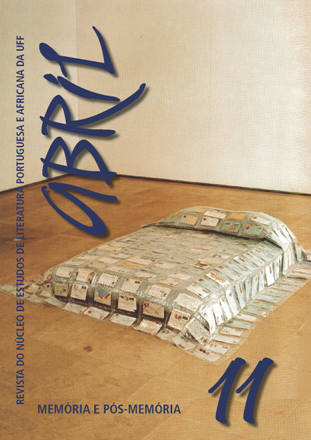Memories legacies of the Colonial War: some conceptual reflections on the intergenerational transmission of trauma
DOI:
https://doi.org/10.22409/abriluff.v5i11.29659Keywords:
Post-memory, Traumatic memory, Second generation, Colonial War, Contemporary Portuguese CultureAbstract
The article takes into account some dominant theories about the controversial concept of post- memory. Post- memory, in fact , as the possibility of an intergenerational transmission of memory, particularly traumatic, especially for people belonging to the familiar sphere that didn’t live the experience in question but maintain an emotional tie with the direct witnesses, provides the ability to critically review the fixation of memory processes in their tense relationship with the possibility of a contractualization of history. The case associated with such a conceptualization is the Colonial War that Portugal fought in Africa for over a decade (1961-1974) and heavily conditioned both the ontology of the country after the Carnation Revolution and the consciousness of the former combatants who lived traumatic experiences projecting the impossibility of their symbolization on family relationships. Besides, through the myth of Philomel, the article approaches part of the contemporary Portuguese cultural production of the second generation, trying to vocalize the painful silences of their parents.Downloads
Downloads
Published
How to Cite
Issue
Section
License
I authorize the journal Abril - NEPA/UFF to publish the paper of my authorship/responsibility that I now submit, in case it is accepted for online publication.
Moreover, I declare that this contribution is original, that it was not submitted to any other editor for publication, and I sign the present declaration attesting the truth of all its contents.
The copyright of the works published at the virtual space of the journal Abril - NEPA/UFF are automatically entitled to the journal. Their total or partial reproduction is conditioned to the authors' citations and publication data.

Abril is licensed under a Creative Commons - Attribution-NonCommercial 4.0 International (CC BY-NC 4.0).









